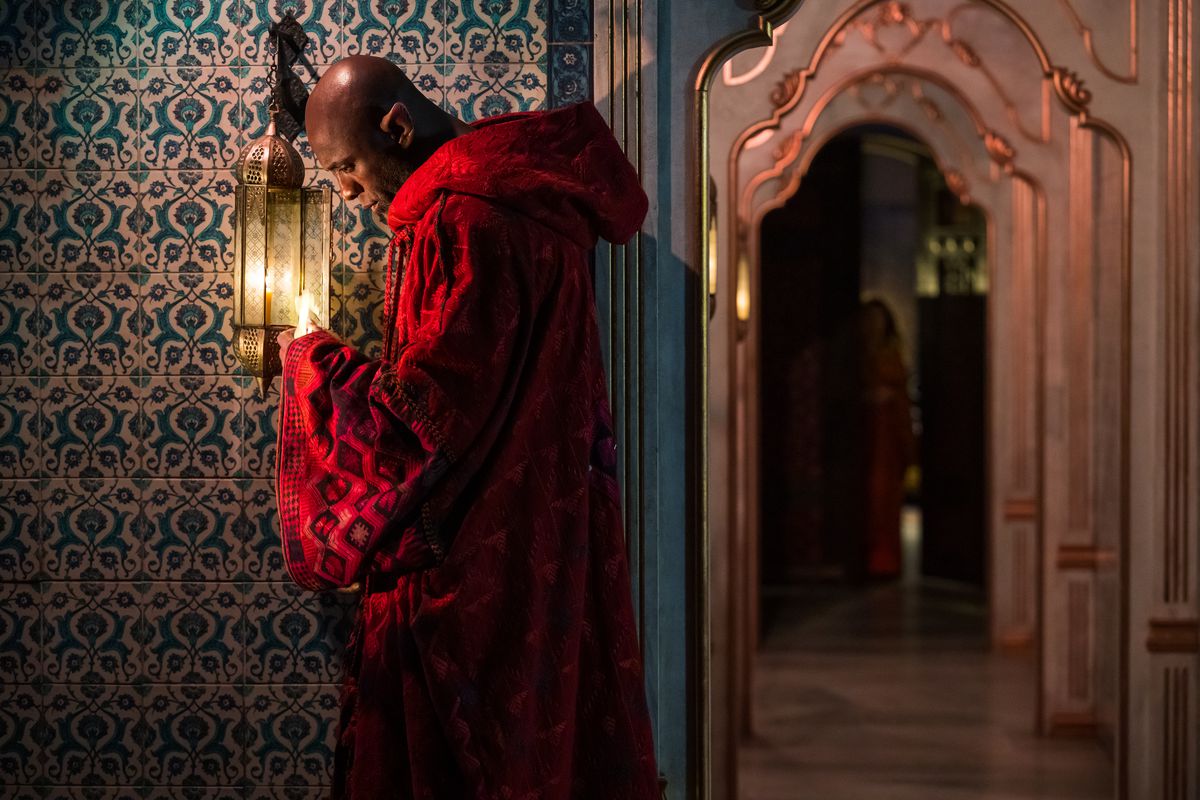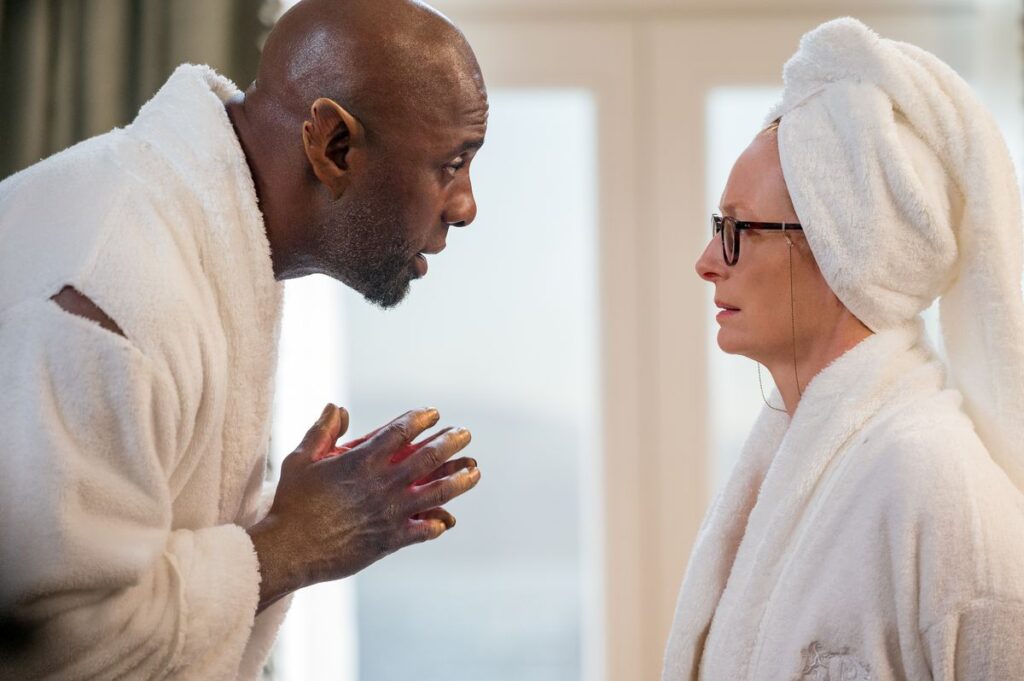Stories are dangerous things. They surround us, even if we’re not necessarily aware of them. In their primal allure, they can command all of our attention, to the point where nothing else matters. We find them and make them all the time, often by accident, just by going one place instead of another, or lingering long enough to have a conversation with someone else. They are why we see ourselves as good or noble — they’re the root of our delusions and the strength of our convictions. It’s impossible to tell whether stories serve us, or we serve them. There is peril in this. That’s what makes them stories.
In George Miller’s fantasy film Three Thousand Years of Longing, Alithea Binnie (Tilda Swinton) is a narratologist, an expert in an anthropological field of study that examines stories, and how humanity has molded them and been molded by them. This makes her the perfect protagonist for a story: someone who thinks she’s smarter than the one she’s in.
This particular story begins on a work trip abroad, where Alithea acquires a filthy, ancient bottle from a curio shop. Upon bringing it to her hotel room and cleaning it, she discovers that her new bottle has held a djinn of myth (Idris Elba) for millennia. As in so many past tales about djinns, Alithea is now entitled to three wishes.
Photo: Elise Lockwood/Metro-Goldwyn-Mayer Studios
However, she knows this kind of story, and she cautions the djinn that there are no “genie offers three wishes” fables that aren’t cautionary tales. But the djinn is bound by the rules of the story, and in an attempt to sway her into making her wishes so he can be free, he tells her several anecdotes from his millennia-long history, trying to illustrate how her assumptions aren’t necessarily true. Maybe, he suggests, if she’s wise, she can make her wishes without fear of regret.
George Miller’s follow-up to Mad Max: Fury Road is nothing like his now-legendary action opus. It’s a quiet, contemplative film that eschews action for a series of conversations between its two leads, visually dramatized in CGI-rich style. The djinn is the storyteller, and the narratologist is there to interrogate his work. Between their exchanges — most drawn fairly directly from the A.S. Byatt story “The Djinn in the Nightingale’s Eye,” adapted by Miller and his daughter, Augusta Gore — the audience is treated to beautifully textured vignettes about bloodthirsty kings, doomed geniuses, and dreamers who long for escape. The craft Miller brought to Fury Road’s relentless chases is now channeled into wondrous stillness, a canvas meant to capture the sheer yearning at the heart of a story. The desire to be known by and know others more fully. One could call that love.
Three Thousand Years of Longing is a languid film that luxuriates in the simple pleasure of listening to a good story well told. As the djinn, Elba delivers his lines in a voice that’s sonorous and dripping with history. The lyrical language is poetic in a manner that survives the passage of time, speaking words meant to be remembered in a bustling scientific age where it’s natural to forget. As Alithea implies, the beauty of his stories invites skepticism, especially in what seems to her like a far less beautiful world.

Photo: Elise Lockwood/Metro-Goldwyn-Mayer Studios
The tension between modernity and fable, storyteller and audience, criticism and escape is a source of sorrow in Three Thousand Years of Longing. In the fringes of its story, the modern world is always there: suffocating, sterile, noisy, skeptical. It is possible, as Alithea continues to doubt the djinn’s increasingly personal stories, that we may no longer be as sensitive to stories’ power, which leaves us that much farther from understanding or loving each other. Maybe we think we’re too good for fables or morality tales. Or perhaps we’re so self-involved that we naturally think every story hinges on whether we personally believe it.
There are films that change the nature of the air you breathe after you watch them, as a motif from its score loops in one’s mind and the color of the world outside the theater doesn’t quite live up to what was seen on screen. Three Thousand Years of Longing is one of those films, a story about stories — a fraught genre prone to self-importance — that isn’t solely interested in their magic as a cloying, unifying force. They are more powerful than that. More dangerous than that. And it turns out that there are few more satisfying ways to explore this than by watching two people who believe they know all there is to know about stories trying to guess how this one ends.
Three Thousand Years of Longing opens in theaters on Aug. 26.

